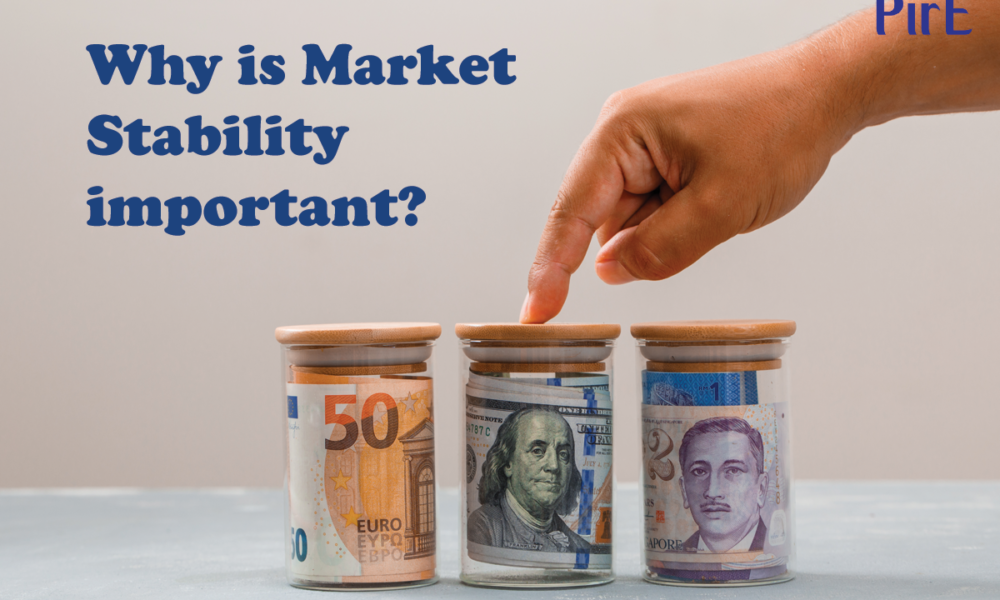Why is Market Stability important?
Financial stability is defined as a state in which the financial system is not unstable. Financial stability comes when the financial system is well-structured to enable smooth market discipline functioning, both the financial safety net and the payment and settlement system are operational.
It can also be referred to as a state in which the financial system’s three components — financial institutions, financial markets, and financial infrastructure are all stable.
The phrase ‘financial institution stability describes a situation in which individual financial institutions are sound enough to carry out their financial intermediation functions sufficiently without the help of external institutions such as the government.
‘Financial market stability refers to a state in which market transactions are not disrupted significantly, and financial asset values are not significantly deviated from economic fundamentals, allowing economic actors to raise and manage money with confidence.
Financial stability is “a state in which the financial system can smoothly assist actual economic operations and is capable of unravelling financial imbalances emerging from shocks,” according to a more wide definition.
Importance of Financial Stability
Financial stability is necessary not just for price stability, which is the central bank’s policy aim, but also for the economy’s healthy development. This is because financial instability imposes significant costs on an economy, as price volatility in financial markets rises, and financial institutions or firms may fail. Furthermore, economic progress may be hindered at this period because economic factors find it difficult to make reasonable judgments, and resource allocation efficiency suffers.
- According to the Financial Stability Board (FSB), an international watchdog, the rapidly expanding crypto marketplaces might pose a serious danger to global financial stability if policymakers do nothing.
- The benchmark Sensex fell 2,702 points, or 4.72 per cent, on the Indian stock market. This is Sensex’s fourth-worst drop ever in absolute terms. The index dropped 2,850 points throughout the trading day.
- The National Stock Exchange’s wider Nifty 50 index fell 815.30 points, or 4.78 per cent, to 16,247.95 points.
- Bullion was used by investors as a safe haven. At the Multi Commodity Exchange (MCX) in Mumbai, gold prices increased by about 3% to Rs 51,750 per 10 gramme, while silver prices increased by over 3% to Rs 66,556 per kilogramme. The price of gold and silver has reached its highest level in almost a year. So far this month, gold and silver prices have risen by more than 8%.
- The current gold price increased by 1.9 per cent to $1,943.86 per ounce on the international market, the highest level since January 2021. Gold futures in the United States increased by over 2% to $1,949.20 per ounce.
Following Russia’s military operation in Ukraine, stock markets throughout the world are bleeding. This resulted in a tremendous loss of money for the investors. The BSE-listed businesses’ market capitalization fell to Rs 242.24 lakh crore. It lost over Rs 13 lakh crore in a single day.

